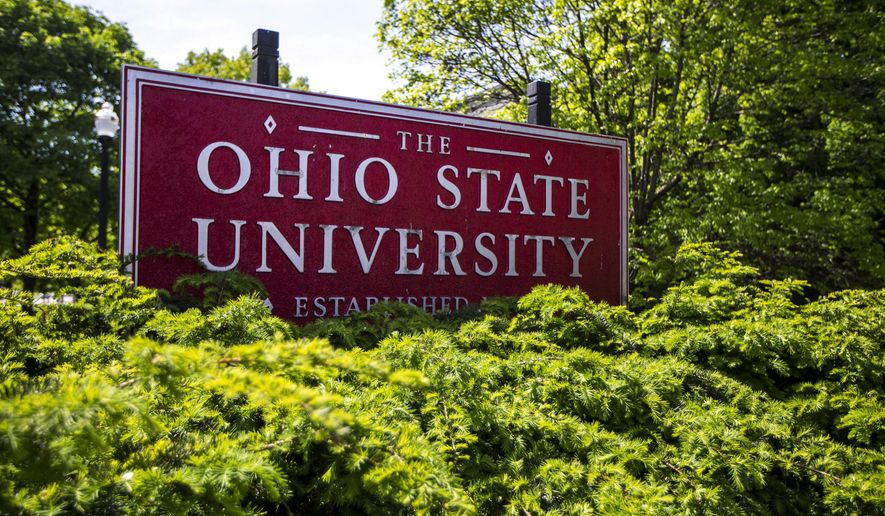A professor in Ohio was sentenced to 37 months in prison Friday for failing to disclose work for China funded by federal grants in what prosecutors say was an immunology research fraud scheme.
Song Guo Zheng, 58, of Hilliard, Ohio, pleaded guilty in November to falsifying federal applications related to $4.1 million in National Institutes of Health grants that were used to develop China’s expertise in the fields of rheumatology and immunology.
Zheng also was ordered to pay more than $3.4 million in payments to NIH and $413,000 to Ohio State University, where he worked on research projects conducted jointly with Penn State University.
The professor was prosecuted under the Justice Department’s China Initiative that since 2017 has cracked down on illicit research done as part of China’s Thousand Talents Program, a Chinese government scheme to obtain American high technology and expertise.
Several professors at American universities were nabbed in the initiative, including Charles M. Lieber, chairman of the Harvard University Chemistry Department, who was also charged with lying to the Pentagon and NIH and working for the Thousand Talents Program. Mr. Lieber has pleaded not guilty.
“In yet another case involving the Chinese government’s Thousand Talents program, Song Guo Zheng will spend the next 37 months in a federal prison because he chose to lie and hide his involvement in this program from U.S. research funding agencies,” said John C. Demers, assistant attorney general in the National Security Division.
“American research funding is provided by the American taxpayer for the benefit of American society — not as an illicit gift to the Chinese government,” he said. “The American people deserve total transparency when federal dollars are being provided for research, and we will continue to hold accountable those who choose to lie about their foreign government affiliations in an attempt to fraudulently gain access to these funds.”
Zhen was arrested in May 2020 in Alaska as he prepared to board a flight to China. He was carrying three two laptops, three cell phones, several USB drives, silver bars and expired Chinese passports for his family.
He fled Ohio after being questioned by Ohio State officials about the undeclared work for China.
FBI Counterintelligence Chief Alan E. Kohler said Zheng hid his links to at least five research institutions in China.
“Zheng greedily took federal research dollars and prevented others from receiving funding for critical research in support of medical advances,” Mr. Kohler said.
Zhen was a professor of internal medicine in charge of a team of experts conducting autoimmune research.
He had been part of the Thousand Talents Program since 2013, prosecutors said.
• Bill Gertz can be reached at bgertz@washingtontimes.com.




Please read our comment policy before commenting.